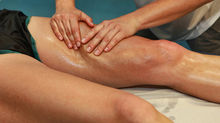Supplements...do I really need them?
- The Studio Team
- Sep 22, 2020
- 4 min read
You might have noticed some new products appear at our front desk over the last couple of weeks! Our Dietitian team at Health & Performance Collective have recommended some supplements for our clients that you can now buy. Here’s their inside scoop on the supplements they recommend and why!
What do we use supplements for?
When we look at nutrition, the priority is always food first. We can all function optimally by just consuming food, as all the vitamins, minerals and macronutrients our bodies require to function and thrive are all available from a nutritionally diverse diet. As Dietitians, we can assess and analyse your normal food intake to decide if you are meeting your nutrient requirements from food on a regular basis.
In some cases, it can be difficult to reach nutrient requirements through food alone. During times of stress, if you have a reduced appetite or are particularly busy, it can be hard to find enough time for meals and snacks across the day, resulting in missing out on key nutrients. Anyone who has allergies, intolerances, or chronic illness that impact food intake such as Coeliac disease or IBS might be in need of supplements to help top up the diet where certain foods can’t be consumed. The same goes for those on vegetarian or vegan diets, and those who do a lot of exercise or training and have increased micronutrient requirements that are difficult to meet through food alone. These are the kind of circumstances where supplements do come in handy!
What supplements are beneficial?
The supplements we recommend all depend on the individual and the reason for needing a supplement in the first place. Here are some of the common supplements we are asked questions about and you might find us recommending to certain clients.
1. Collagen
Collagen is a protein abundant in the body, found in skin, hair, nail, and soft tissues. Our body naturally produces collagen but this does decline with age. There is an exciting growing body of evidence which has shown the usefulness of collagen supplements, particularly marine collagen, for skin and nail health. The quality of the product definitely matters in this space!
There is also a stack of exciting research emerging surrounding the use of collagen for both connective tissue and joint health. Collagen supplements have been found to be effective in tendon repair following an injury – they have been found to be beneficial for both acute and chronic injuries. The key is in the dose and timing of collagen supplements so make sure to touch base with our Dietitian when considering a collagen supplement!
2. Fish oil
Fish oil is rich in the omega-3 fatty acids EPA and DHA that support overall health. The body doesn’t produce omega-3 so it must be consumed through the diet, with the best sources including oily fish such as salmon, trout, sardines, mackerel and tuna. Omega-3 fatty acids consumption has been linked with cardiovascular health, brain health, cognitive health, management of inflammation and can support our mental wellbeing. If you aren’t consuming fatty fish regularly, a supplement may be helpful to ensure needs are being met.
3. Probiotics
Probiotics are live bacteria that can have health benefits for your gut microbiome, with gut health linked to our overall health, wellbeing and risk of certain diseases. The more diversity of different strains of bacteria living in the gut, the more benefits they will have on our body which is where a probiotic supplement might come in handy, which may also help to improve digestion and absorption of nutrients. There are different strains of probiotics that can have different benefits in the body. For example, some probiotics are beneficial to restore bacteria after a course of antibiotics or illness, whereas other strains of may improve symptoms in people with irritable bowel syndrome. Chat with our Dietitian first to find out the most useful probiotic supplement for you.
4. Protein powders
Protein powders are probably the most common and widely available supplement, but it isn’t just for gym junkies! Protein powders can be used as a protein top up in the diet for high energy needs or people who are on-the-go. Consider protein powder as a convenience option when you don’t have time or access to a high protein snack or meal throughout the day. People often use protein powder after exercise to assist recovery. Food sources of protein are usually more beneficial than a powder as they will provide nutrients beyond protein, such as fibre, vitamins or other minerals. There are so many different types of protein powders to choose from that our Dietitian can help you make a decision on the best option for you and your needs.
How should I decide what supplements to use?
We always recommend seeking advice an Accredited Practising Dietitian and GP when it comes to supplements. At worst some supplements might interact with medications or contain ingredients not listed on the packaging, and at best you might waste money on a supplement that isn’t useful or that you don’t really need! If you are an active person, lead a busy life or are competing in sport it is particularly important to seek advice from an Accredited Sports Dietitian before taking any supplements, including vitamins and sport foods!
Lucky for us at the Studio Rozelle, our Dietitian Kelsey Hutton is both an Accredited Practising Dietitian and Accredited Sports Dietitian. Book in with Kelsey on Thursdays.
Products currently for sale at The Studio Rozelle:
True Protein – Collagen Hydrolysed Protein RRP $40
Best for connective tissue and joints (acute and chronic management)
Vida Glow – Marine Collagen RRP $59.95
Best for beauty and skin health






























Comments